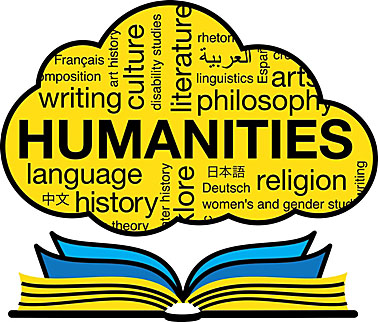Poetry will be the buzzword Thursday, Oct. 23, as two English faculty members present at this fall’s second Humanities Happy Hour.
Dr. Melissa Gregory, associate professor of English, and Dr. Andrew Mattison, professor of English, will speak Thursday, Oct. 23, from 6 to 7 p.m. in the Libbey Hall Dining Room.
 The free, public event will begin at 5 p.m. with a beer and wine cash bar and free refreshments that will continue through the talks and end at 8 p.m.
The free, public event will begin at 5 p.m. with a beer and wine cash bar and free refreshments that will continue through the talks and end at 8 p.m.
Gregory will give a talk titled “Women Writers and Nursery Rhyme” that will explore the poem, “Twinkle, Twinkle Little Star,” and the story of Ann and Jane Taylor — two women who wrote a collection of poems titled “Rhymes for the Nursery,” a collection that was one of the first volumes of original verse for children. A couple of the poems, including “The Star,” have become part of popular culture, passed down orally from generation to generation, so the original author no longer is known.
The poems, which served as entertainment for children, also often spoke to women with topics such as maternal loss, Gregory explained.
“You’ll see in these verses some interesting experimentation with poetic voice; they’ll create an internal speaker who in turn is imagining what it would be like to speak from the perspective of a child,” she said. “I think these poems also sometimes become ways to express the kinds of experiences and concern that adult women have. They’re of course for children, but also for the mothers reading them aloud to pre-literate children.”
At the time, nursery rhymes were one of the few ways women could enter the literary market because it was acceptable to write for children, Gregory said.
“This becomes an opportunity for women writers, sort of undercover, to experiment with trying to find ways to represent the female experience,” she said.
Mattison’s talk, “Renaissance Song Lyrics in Print and the Definition of Poetry,” will be about how poetry in the early 1600s has influenced the genre of poetry, including modern poetry. According to Mattison, two major areas of particular significance that brought about these changes: the transformation of the nature of poetry by being put in print and the relationship between poetry and song in this period.
“I’ll be discussing texts that appear in different versions as the words to songs and as poems,” he said. “They were printed independently as poems; they look on the page the way a poem looks. But on some other occasion they were sung.”
Mattison said these comparisons raise the controversy of the differences between poetry and song. As a pianist himself, Mattison said his personal experience with both has influenced his opinion on the relationship between them.
“When people try to insist that music and poetry are the same or really deeply connected, they often end up oversimplifying both,” he said. “In order to understand either one in a thorough way, you have to separate them.”
When asked if their topics coincided, both professors agreed that their subjects were complementary of each other.
“We’re both talking about the margins of the genre of poetry,” Mattison said. “Nursery rhyme is something that takes the form of poetry, but wouldn’t necessarily be thought of as poetry. Of course the same thing is true of song. They fit very nicely together.”
Gregory agreed: “In the case of the Taylor sisters, they are partially grounding their literary authority in oral tradition, but that doesn’t make them songwriters or oral tale tellers; they’re poets experimenting with the written word on the page.”
Humanities Happy Hour was started last spring by the Humanities Institute in the College of Languages, Literature and Social Sciences. The institute serves as an advocate and support for the study of human culture — its literature, languages, arts, history, philosophy, folklore and religion — at UT.
“What we do in humanities is interesting and enjoyable and there’s value in that,” said Dr. Christina Fitzgerald, director of the institute and professor of English. “These are the kind of things that make life worth living, that shape our lives — art and culture and literature.”
For more information, contact the Humanities Institute at 419.530.4407 or humanitiesinstitute@utoledo.edu.